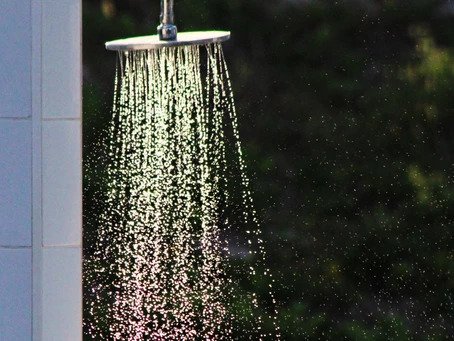![]()
Your voice of Hair

Water is truly your best friend when you rock your natural hair. After years of running away from water while being relaxed, I was happy to finally be able to embrace it. Water is the ultimate source of moisture that our hair needs. When choosing products, it’s always best to choose those with water listed as the first ingredient to keep our hair juicy and moisturized.
Have you ever noticed that your hair seems limp, dry, and dull? Even when you follow all your best hair practices? Take a hard look at the water you are putting into your hair. It can be causing more harm than good. Hard water, water that contains a high mineral content, is an often overlooked contributor to some hair problems we face.
Hard water is water that has high concentration of minerals such as iron, calcium, and magnesium. Levels of hardness in water varies by location. The minerals present in certain cities, click here to see the water hardness levels in your area. If you’ve ever travelled and noticed changes in your hair this may be why. According to a water study conducted at Virginia Tech University, over 85% of households within the United States have hard water coming from their faucets. Many of us are affected without even knowing.
Compared to soft water sources, distilled water, filtered bottled water, and rainwater for example, hard water causes buildup on nearly everything it comes in contact with. This can be seen on dried glassware and in sinks and tubs. Our hair is no different. The minerals left behind by the water cause buildup on our strands and scalp. This buildup weighs our strands down, giving a dull appearance. Mineral deposits on the hair can open hair follicles leading to dry brittle hair. This makes hair frizzy and difficult to detangle, which we know leads to damage.
If you find yourself experiencing these hair symptoms with no known cause try these steps out:
Many companies offer quick at home water tests where you can test the concentration of minerals in your water. One quick way to check is to take a look at your shower faucet. If you see a white buildup around the faucet, you’ve most likely been experiencing hard water.
If you are into DIY, add water to a cup and add about 10 drops of dish soap to it. Shake it up, allow it to settle, and see what happens. If it turns a milky white color, it’s most likely hard water.
Give shower filters a try. I know it sounds a bit extra, but they come in handy and will get the job done. These filters are easy to use and work to neutralize metals and other chemicals found in the water.
Use distilled water for your hair! I like to pour distilled water into my spray bottles to use as the base for when I moisturize my hair.
Clarifying shampoos and treatments are great for bringing life back to your hair! Clarifying deep cleanses the hair. When done correctly, it removes all traces of buildup and excess products from the hair. Leaving you with brand new hair that is ready to absorb all the products you love! Make sure to follow up any clarifier with a moisturizing deep conditioner.
Read our blog post on how to use Bentonite Clay and Apple Cider Vinegar to clarify your hair!
Our hair needs water to thrive. It’s important that we make sure that our water sources are actually nourishing our hair!
How do you plan to combat hard water? Comment below!